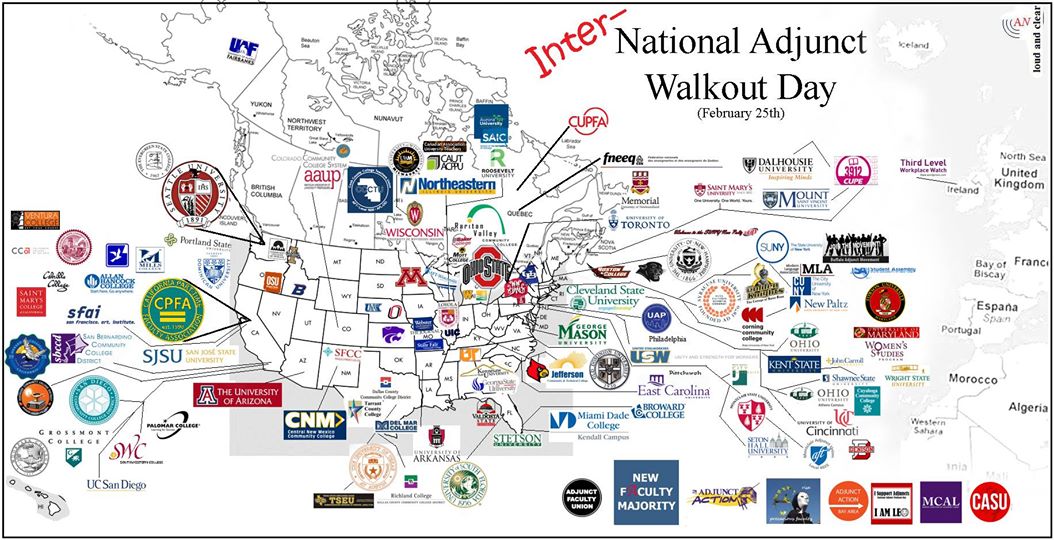 Today is National Adjunct Walkout Day, but instead of participating I’ll walk-in to the Jessup Correctional Institution and I won’t walk-out until my class and other responsibilities are done. Mostly that’s because I think the adjunct problem is less important than the mass incarceration problem, and my students would be worse off if I decided to stay home. I’d be a cad to complain to them about my plight, in any case: they make less than a dollar a day, if they’re lucky enough to get jobs at all. But my situation is probably a bit unique: most students won’t complain if their teachers cancel class. They consider themselves better off when we stay home.
Today is National Adjunct Walkout Day, but instead of participating I’ll walk-in to the Jessup Correctional Institution and I won’t walk-out until my class and other responsibilities are done. Mostly that’s because I think the adjunct problem is less important than the mass incarceration problem, and my students would be worse off if I decided to stay home. I’d be a cad to complain to them about my plight, in any case: they make less than a dollar a day, if they’re lucky enough to get jobs at all. But my situation is probably a bit unique: most students won’t complain if their teachers cancel class. They consider themselves better off when we stay home.
On the commute to Jessup, I’ll get caught in traffic. It seems like I always do! And there’s something I like to remind myself as I’m driving: I’m part of the problem. It always seems like the car in front of me is the problem, the one who just cut me off. But to the car behind me, I’m the one in the way. Traffic works that way: we think we’re the victims of traffic, but really we’re the perpetrators. We’d all be better off if some of us decided to stay home.
Low wages work sort of the same way. It seems like they’re the employer’s fault, or the competition’s. But the employers are just trying to save money (and yes, that means they don’t care as much about the quality of the education they provide as they do about costs, though adjuncts provide high quality educations anyway). And our fellow adjuncts are bidding down wages because they are willing to work for so little, but they can rightly point to me as the problem, working–for free!– at a prison alongside three other jobs when I ought to be bidding wages up. Collectively, we have made ourselves cheap. We’d all be better off if some of us decided to stay home.
Anyone with a PhD can make more money in another field: we’re smart folks, with skills that other people will pay to learn, which they will then use less well than we could–for more money. So a walkout makes sense. What makes less sense is coming back. We’d all be better off if some of us decided to stay home.
Now of course I’m ignoring the obvious: universities are corporatized businesses run in such a way as to exploit their labor force, to separate us from the value of our labor. Without shareholders, the primary beneficiaries of that exploitation are other workers in the same firm: administrators, senior faculty, and the like. But still: that exploitation depends on a reserve army of underemployed PhDs willing to take the job, which of course pays poorly but comes with great heaps of respect and esteem. So it’s still true: we’d all be better off if some of us decided to stay home.
So all we need to do is decide who will stay home. For that we’ll need collective bargaining–unions–and we’ll need to understand that the unions are only going to be effective if, after the walkouts, some of us decide (or are forced) to stay home. But maybe in that case we won’t all be better off: maybe the people who have to stay home or leave the academy will be worse off. Or maybe many of us would be better off if only someone would convince us that working at GEICO would be a better job.
Three reports worth looking at if you want to have an evidence-based discussion of these issues:

Second Opinions